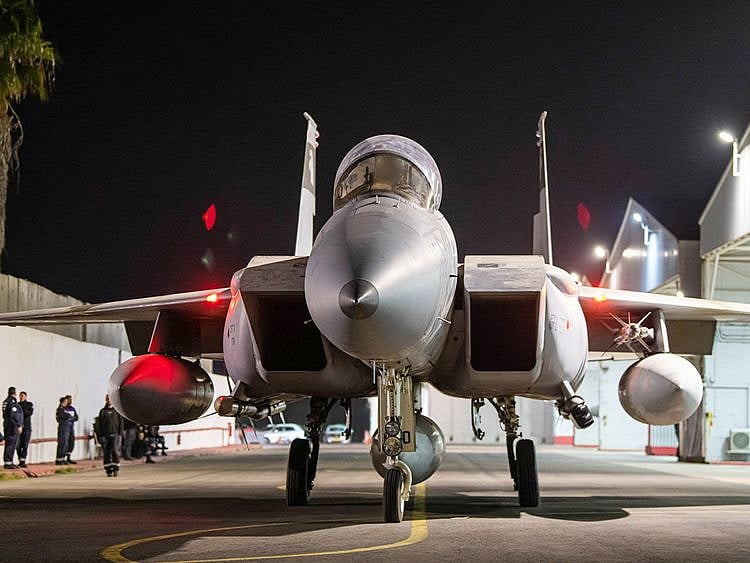Israel's 2025 budget allocates more for military, less on growth
The $163 billion spending plan will next be put to the Israeli parliament for approval

JERUSALEM: The Israeli cabinet approved a 2025 budget to pave the way for rising defence spending and higher taxes, reflecting a profound shift in priorities since the start of the war with Hamas just over a year ago.
The conflicts in Gaza and against Hezbollah in Lebanon, as well as heightened tensions with Iran, have weakened Israel's economy and finances and forced Prime Minister Benjamin Netanyahu's government to focus on reining in the budget deficit.
"There is no economy without limits," Netanyahu said on Thursday ahead of a cabinet debate on the budget. "If you give to one place, you unfortunately need to take from another."
The 607 billion shekel ($163 billion) spending plan will next be put to the Israeli parliament, or Knesset, for approval. The ruling coalition has to get it passed by the end of March or, by law, its mandate ceases.
Some opposition leaders have criticised the budget, saying it's designed to appease Netanyahu's far-right coalition members by keeping spending for religious and nationalist causes that do little to boost growth.
In an overnight meeting at the end of which a vote was taken, some cabinet ministers also voiced opposition. The most significant of those was hard line National Security Minister, Itamar Ben Gvir, who saw his demands for high supplements for the police rejected. His six-member party will vote against the budget in parliament, he said, though the proposal can pass without them.
Next year's fiscal-deficit target has been set at 4.3% of gross domestic product. Defence spending will be the largest item, totaling 117 billion shekels. That's similar to last year's figure but 80% higher than the pre-war plan for 2024. The forecast for government revenues next year is 497 billion shekels.
After the vote, Netanyahu said defence expenditure will likely end up being even larger. The prime minister cited a designated committee to determine Israel's future military needs, which is meant to make its conclusions in December. "We may be able to add those to the budget "- ahead of its final approval "- or if necessary we will revise it," he said.
Finance Minister Bezalel Smotrich said that if the defence budget needs to be enlarged, it will be done while "maintaining fiscal responsibility, assuring Israel's credibility across markets."
Israel's been downgraded several times since the conflict began, though its retains ratings well into investment-grade territory.
A fiscal adjustments package totaling 37 billion shekels, 2% of GDP, was also approved and mostly includes new taxation as well as some spending cuts.
A major pillar of it will be a new levy on private companies that opt against dividends to avoid taxation. A 2% tax will be imposed on such profits, even as they are kept in holding companies and invested in finances and real estate rather than in real-company activity.
Income tax bands will not be adjusted higher in line with inflation "- meaning many workers may end up seeing their real post-tax incomes drop. Tax benefits on pensions and withdrawals will be narrowed or frozen. A 2% tax will be imposed on individuals with an annual income of over 700,000 shekels.
To avoid freezing welfare allowances, larger contributions to the The National Insurance Institution will be imposed on the public.
Many of these steps will further strain the middle class, which is perceived to be carrying the heaviest burden of the conflicts from a financial standpoint.
Smotrich, however, argued that a "complex, challenging budget proposal had been voted on, that will support military efforts on the front line and at the home front."
Earlier this week, he said the budget "lacks reforms" and "concentrates on a set of measures aimed at bringing down the target deficit and long-term debt to GDP ratio."
Smotrich said he hopes fighting in Lebanon ends this year and described military operations in Gaza as "no longer having a significant economic impact on Israel."
"Next year will be a year of exiting the war," he said.
Still, defence expenditure at about 6% of GDP will reflect the new priorities of Israel as it battles Iran-backed militants in several countries and in the Palestinian territories. That's well above the figure of 4.2% in 2022 and the OECD average of 1.7%.
A sum of 4.1 billion shekels will be allocated to controversial coalition funds, political handouts to parties of the ruling coalition that are often diverted toward religious causes and Jewish settlements in the West Bank.
Benny Gantz, an opposition leader who joined Netanyahu's government after the war began and quit in June, said these funds were "solely meant for Netanyahu's and the coalition's political survival."
"Anyone who supported this budget, shame on you," he said on X.
Sign up for the Daily Briefing
Get the latest news and updates straight to your inbox
Network Links
GN StoreDownload our app
© Al Nisr Publishing LLC 2026. All rights reserved.